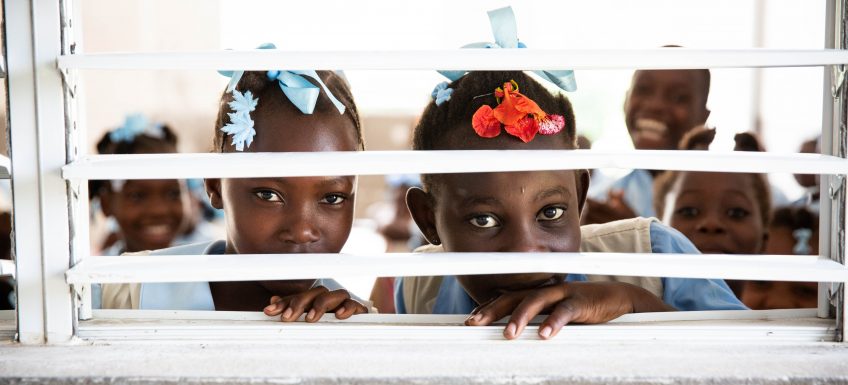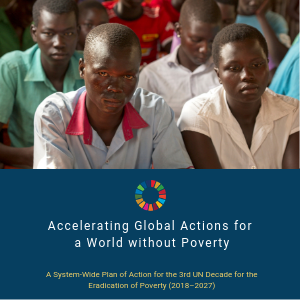Accelerating global actions for a world without poverty
In its resolution 72/233, the General Assembly proclaimed the Third United Nations Decade for the Eradication of Poverty (2018–2027). It also considered that the theme of the Third Decade, to be reviewed at its seventy-third sessions, should be “Accelerating global actions for a world without poverty”, in line with the 2030 Agenda for Sustainable Development. The core of the present report consists of an inter-agency, system-wide plan of action for poverty eradication to coordinate the efforts of the United Nations system, as well as recommendations concerning how to make the Third Decade effective.
As the international community embarks on the Third Decade for the Eradication of Poverty, an estimated 783 million people lived on less than $1.90 a day in 2013, compared with 1.867 billion people in 1990. Economic growth across developing countries has been remarkable since 2000, with faster growth in gross domestic product (GDP) per capita than advanced countries. This economic growth has fuelled poverty reduction and improvements in living standards. Achievements have also been recorded in such areas as job creation, gender equality, education and health care, social protection measures, agriculture and rural development, and climate change adaptation and mitigation.
![]() However, poverty rates are still high in many countries in Africa and the least developed countries. In 2013, of the 783 million people living in extreme poverty, more than half were in sub-Saharan Africa and close to a third lived in Southern Asia. Pockets of poverty also afflict middle- and high-income countries. In 2017, extreme working poverty remained widespread, with more than 300 million workers in emerging and developing countries having a per capita household income or consumption below $1.90 per day.
However, poverty rates are still high in many countries in Africa and the least developed countries. In 2013, of the 783 million people living in extreme poverty, more than half were in sub-Saharan Africa and close to a third lived in Southern Asia. Pockets of poverty also afflict middle- and high-income countries. In 2017, extreme working poverty remained widespread, with more than 300 million workers in emerging and developing countries having a per capita household income or consumption below $1.90 per day.
To eradicate poverty by 2030, given current rates of population growth, it will be necessary to reduce by about 110 million every year the number of people living on less than $1.90 a day. The United Nations system plays an important role in meeting that global challenge. The present section highlights priority areas of the response of the United Nations system as an integral component of global action for the effective implementation of the 2030 Agenda. While the support of the United Nations system is necessary, it will have the most impact when countries put in place the right integrated policies to fight poverty at the local, national and regional levels, supported by an enabling international environment, as recognized in relevant resolutions adopted by Member States.



Follow Us